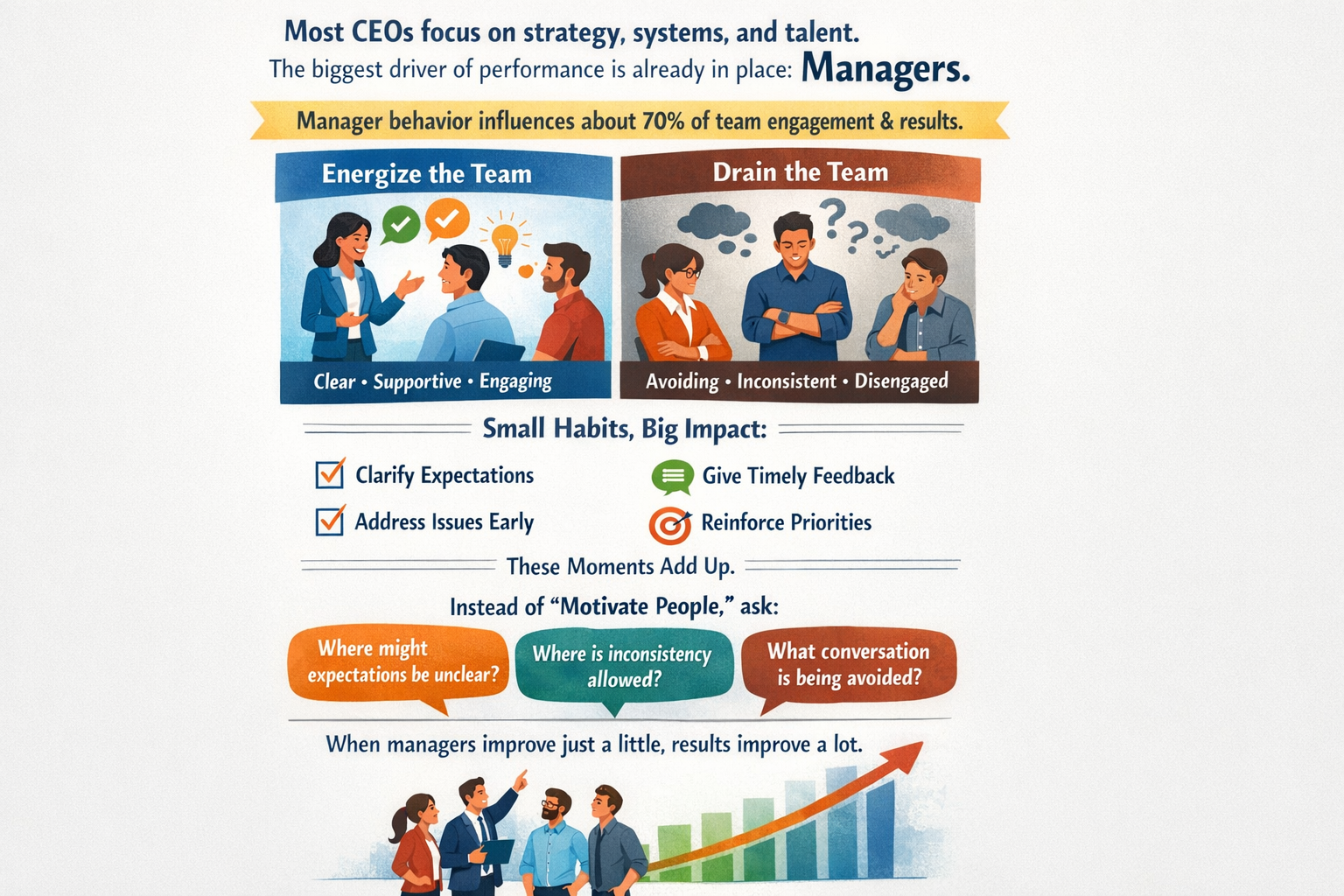When Managers Help by Asking Questions
Cathie Leimbach • July 29, 2020
This is a subtitle for your new post

How do you structure meetings with your direct reports? Do you give them their assignments for this week and then adjourn the meeting? Or, do you encourage two-way conversations by asking open-ended questions to learn about the successes, joys, and challenges in their personal life and their work responsibilities?
A manager's job is to serve the needs of their staff, to support them to be personally successful and contribute to the organization's success. Asking your employees open-ended questions is the best way to understand their needs.
Asking 'What would you like to talk about today?' or 'How can I help you be successful this week?' opens the door for your team members to share their bottlenecks. Open-ended questions, such as those that start with the '5 Ws' or 'How' allow your direct report to set the agenda for the discussion. When you know what is limiting their performance, you can help close their gaps in knowledge, skills, or tools so they can be more productive.
What open-ended questions could you ask your team members in your next one-on-one meetings?

Most communication problems don’t happen because people aren’t listening. They happen because leaders assume clarity instead of checking for it. “I think they get it” isn’t the same as “they really do.” When people don’t clearly understand what’s expected of them, they make their own assumptions to fill in the gaps. That’s when rework, missed deadlines, and frustration show up. Strong leaders ask better questions: What do you see as the top priority? What does success look like to you? What could get in the way? These don’t slow work down — they prevent costly resets later. Try a simple weekly habit: Think about one key conversation. What did I mean? What did they hear? Where was the gap? Small awareness leads to big gains. 👉 You’re invited to a Leadership Conversation with other leaders to discuss common leadership gaps and how they quietly influence results.

Most CEOs focus on strategy, systems, and talent. But the biggest driver of performance is already in place: managers. Manager behavior influences about 70% of team engagement and results. What happens in everyday conversations matters more than perks, pay, or policies. Managers either multiply energy or drain it. Clear, supportive managers raise performance. Avoiding, inconsistent managers quietly lower it. The good news? Small habits make a big difference: Clarifying expectations Giving timely feedback Addressing issues early Reinforcing priorities These moments add up. Instead of telling managers to “motivate people,” try asking: Where might expectations be unclear? Where is inconsistency allowed? What conversation is being avoided? When managers improve just a little, results improve a lot. 👉 Join our 60-minute Leadership Conversation to explore how everyday manager habits quietly shape engagement and results.
